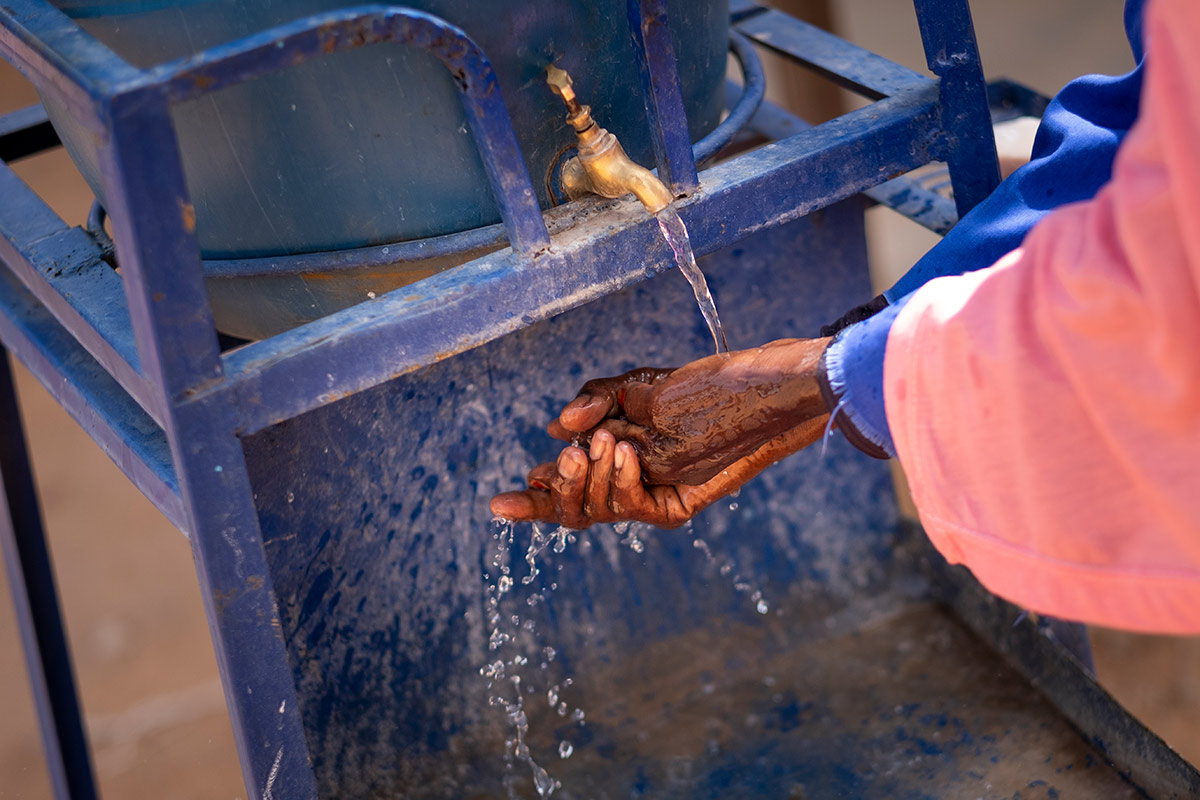In the worn paths of Doro Camp, Maban, South Sudan, the air is thick with the sound of distance chatter and the clatter of containers being filled with water. The faint scent of earth mingles with hints of perspiration, highlighting the effort of residents as they navigate their way to the water points—a crucial lifeline amidst the harsh realities of life in South Sudan. In Doro Camp, Maban, securing clean water has defined the daily lives of its residents, including Zeriba Hessen, 40.
Zeriba is from the Central African Republic, where one in every five people is displaced. Zeriba’s life took a dramatic turn when conflict forced her to flee her home.
“The war has separated me from my husband and the children. I have been praying and crying to God every day to reunite me with my family.”
Before the crisis, Zeriba’s family enjoyed a comfortable life; her husband ran several businesses, providing them with financial stability. “I could eat or drink anything I wanted because I had the means, but now it is a different story.”
Since arriving at Doro Camp just over two years ago, Zeriba has faced numerous challenges. “I rely completely on the food provided by the World Food Program, and apart from that, I do not have any other source of livelihood.”
Accessing clean water is another daily struggle for both Zeriba and other camp residents.
“The challenge I face in accessing water is overcrowding at the water points due to the increasing number of refugees in the camps.”
The process of collecting water is time-consuming and fraught with difficulties for many camp residents. “I travel to the water point and back home. This challenge has made it difficult for my family and me to always have a steady water supply in the house. It also affects our ability to practice consistent hygiene, as water is essential for washing hands and keeping clothing and cooking utensils clean.”
The impact of these challenges extends beyond daily inconveniences to poor health and wellbeing. “My health has changed ever since I arrived here. I often get sick with malaria and typhoid,” says Zeriba, who recently underwent surgery for appendicitis.
However, despite the difficulties, access to water has brought some semblance of normalcy to Zeriba’s life and that of the community. “The distance to the water point is not unbearably long, which ensures we can still have water at home,” she says. Additionally, having water available has allowed her to maintain a small kitchen garden, supplementing their limited food supplies.
Since 2012, the water systems in Doro Camp have been vital, yet they are now facing significant challenges. Originally intended as emergency infrastructure, our current water supply allows us to provide each person with approximately 10 liters per day. However, with a population exceeding 200,000, this amount is barely sufficient for their needs.
To ensure everyone can access safe water, we urgently need more support to maintain and improve these systems and provide holistic services to support communities.
Zeriba’s message to the world is clear: “We had hopes of returning home soon, but the recent fight in Sudan has shattered all our hopes. We plead with donors not to forget us. We are in dire need of your humanitarian services.”

Support Relief International
You can make a difference in the lives of individuals like Zeriba, offering hope and the promise of a better future.
